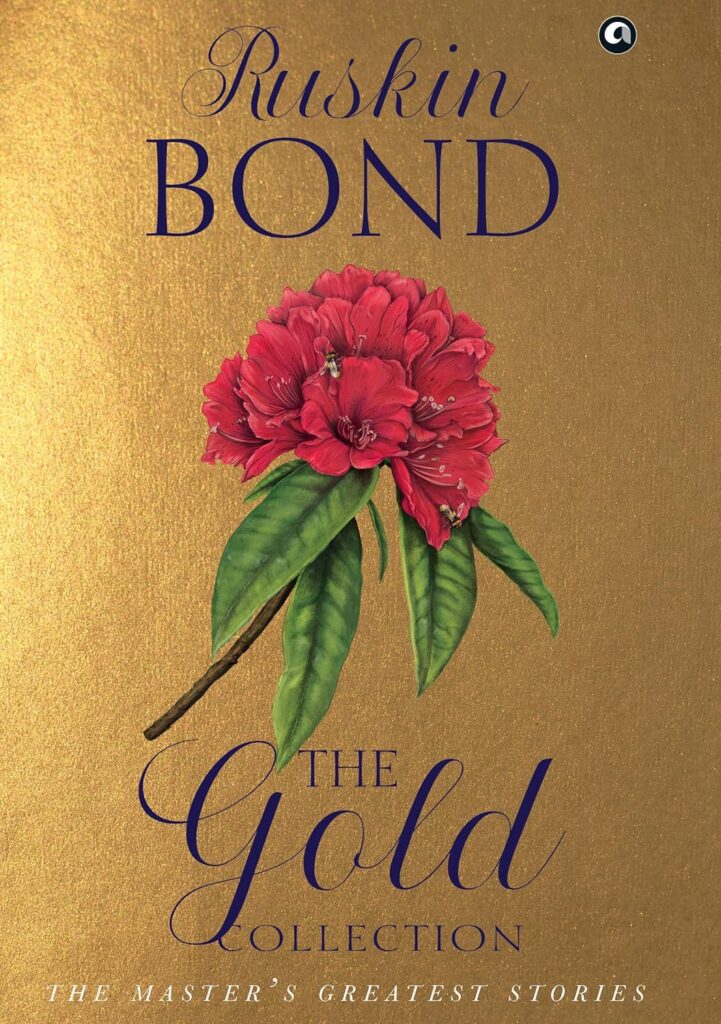India is a treasure trove of experiences, the more you explore, the more experiences. To Ruskin Bond’s credit, he manages to weave several such experiences together to give the reader a peek into both the simplicity and richness of India’s villages. What stands out about his storytelling is its simplicity which leaves awe-inspired. This is probably why, even after a year people still stand in queues for hours to meet Bond every Saturday at Landour’s Cambridge Book Depot where the author sets aside an hour to meet fans.
In his latest collection of short stories, The Gold Collection, one can look forward to enjoying a collection of 10 tales that keep you hooked with their engaging storylines that show you the many sides of India. His characters have a strong voice and are often found to be marching to the beat of their own drum. Take the example of Binya in The Blue Umbrella, which is the first story of the collection.

Living in a small house in the hills of Garhwal, Binya is two years younger than her brother Bijju but the two are worldly-wise in their ways. Binya knows that she has to stay home while her brother goes to school but never complains. Bijju who knows that his single mother could use help around the home spends whatever free time he has pitching in with chores. The story revolves around Binya’s fascination with a blue umbrella that she once traded from an English memsahib for her claw pendant that was supposed to ward off the evil eye.
The story follows Binya climbing mountains to save the umbrella, which she carries everywhere she goes. At the same time, Binya isn’t the only one fixated on the blue umbrella. Be it tea seller Ram Bharose the temple pujari or the school principal’s wife, everyone secretly vies for the umbrella. Just about when the reader is convinced that there’s no way Binya would give the umbrella away, she does just that with a kindness that warms your heart. That’s the effect of Bond’s heartfelt story writing.
An Indian author of British ascent, Bond spent a large part of his formative years in the hills and cities like Dehradun and Shimla before moving to England for college. He returned to India and worked as a journalist with leading English dailies. A few years later, he turned full-time author and shifted back to the hills. The Gold Collection could very well be described as an ode to Bond’s experiences of living in the hills. Right from the description of the small town of Kempty to the rhododendron forests in Dalhousie, the deodars in Shimla, and the horse chestnuts of Mussori.
Another example of Bond’s real-life-inspired penmanship is the story ‘Miracle at Happy Bazaar’. The story is inspired by the small towns’ penchant for gossip. It tells the tale of a mysterious healer who comes to visit Happy Bazaar and decides to stay there forever. Now, what’s special about the man is that he is a healer who cures people by absorbing their cosmic energy. After curing a local tea seller of his rheumatism, Dr Cosmos, as he was fondly called, became a household name and people from far off came to visit him and be relieved of their pains. What stands out is that even though there’s a hospital a few miles away, the queues visiting Dr. Cosmos at Happ Bazar don’t thin.
The 10 stories feature Bond’s bespoke prose that effortlessly captures the quiet and solitude of the hills. These stories take the readers to places they might have never experienced and know about nature’s myriad ways. You might not be a local but these stories make you feel like one with their description of everyday life in the hills.